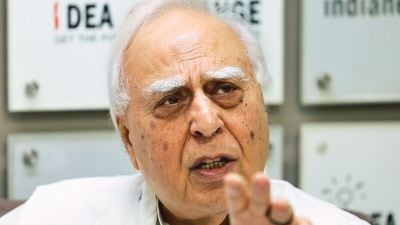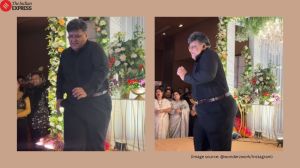Dare to Say I Dont Know?
I dont know why does it seem so rare and radical for someone to utter these three little words?
Why its important to resist the glib certainty of readymade opinion
I dont know why does it seem so rare and radical for someone to utter these three little words? We flit self-assuredly from one subject to another,or post compact arguments on Facebook or Twitter,match TV news indignation with emotion of our own. Where does all this certainty come from?
Many people I know seem to speak with great authority and vehemence on an improbable range of issues. And yet,theres no sign of a visible struggle with ideas,no awkwardness,no self-doubt. Really,what do most people know about nuclear energy,or genetically modified food,or the specifics of various land acquisition struggles? Many subjects are too technical,or imperfectly documented,or come to us through many reportorial filters. Were unlikely to have weighed the evidence and come to our own conclusions.
Im not suggesting that anyone shy away from big subjects or leave it to the experts on important public questions but that if you cant make an honest attempt to understand them,consider all sides and then form an opinion,it doesnt matter enough to you. Personally,I cant claim to do that very often.
John Updike once said,I find it hard to have opinions. Theologically,I favour Karl Barth; politically,I favour the Democrats. But I treasure a remark John Cage made,that not judgingness but openness and curiosity are our proper business. To speak on matters where youre ignorant dulls the voice for speaking on matters where you do know something.
He was almost too sensitive to the truths you miss with any strident stand everything is infinitely fine,and any opinion is somehow coarser than the texture of the real thing.
That sounds like a bit of a cop-out,almost a call to disengagement. We do need to take stands on public issues,and we need presuppositions to even begin thinking. And obviously,in this complex and mysterious world,you cant be expected to know everything first-hand. You need trusted sources,taste-makers,guides. But when you rely on intermediaries,pick the right ones. Stay clear of those who cant let go of their idée fixes,or if you choose to go with them,at least know youre describing a partial reality. Some hesitancy about your opinions may be wise given how wrong we usually are. Even experts succumb to judgemental shortcomings overconfidence,hindsight bias,belief under-adjustment. The facts might change,but their opinion is dependably fixed.
Sometimes the shakier our case is,the louder our voices are. After all,we come to our convictions in such a chancy way as Salman Rushdie memorably wrote,we forge our beliefs from scraps,dogmas,childhood injuries,newspaper articles,chance remarks,old films,small victories,people hated,people loved. And in fact,perhaps it is because our sense of what is the case is constructed from such inadequate materials that we defend it so fiercely.
But now,were flooded with faff. Weve all talked about the book from the review,used a bit to extrapolate the rest,formed our ideas of people from their friends,name-dropped and bs-ed our way through. But this rush to judgement seems stronger than ever now,and it has something to do with the way we process information now,with fewer pauses for reflection. We consume news and chatter from so many sources,that were forced to label and shrink,create categories,write off altogether. The ratio between reading and judgement is entirely different,with the Web. You read three introductory lines about something on Arts and Letters Daily and nod wisely when it comes up in a conversation. If you are familiar with a fragment of something,you assume its the gist,and dont bother with the rest.
Much as I resist the curmudgeonly premise of Nicholas Carrs The Shallows: What the Internet is Doing to our Brains ,there is something to the sense that the Web enables you to be glib on a whole new scale. I sample so widely,I often imagine myself quite in command of a subject I couldnt really talk about for 10 minutes. (And honestly,if I only ventured an opinion on matters I have personally struggled to get a fix on and succeeded,it might make for many uncomfortable silences.)
It helps to be reminded every now and then that knowingness is not the same as knowing.
amulya.gopalakrishnanexpressindia.com


- 01
- 02
- 03
- 04
- 05





























